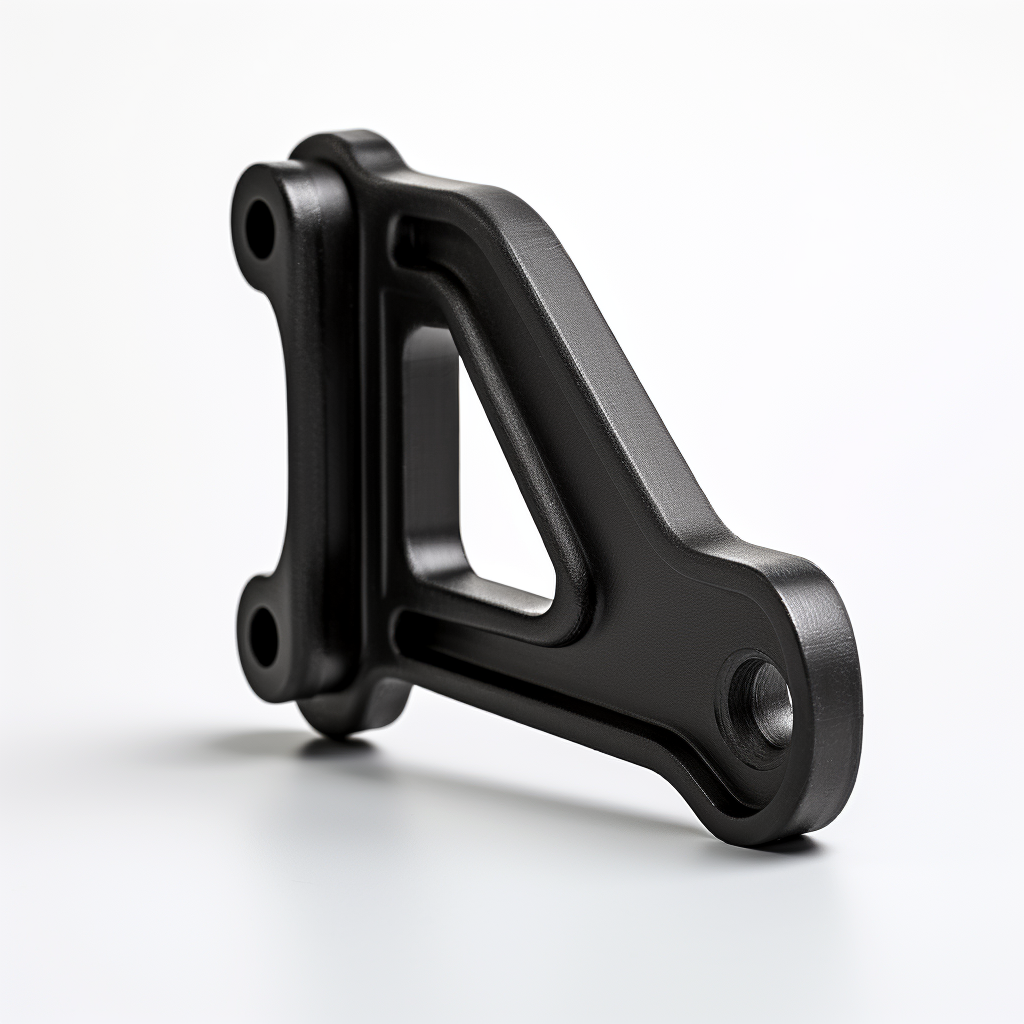
PC Plastic (Polycarbonate) Selection Guide
PC (Polycarbonate) is a versatile thermoplastic polymer known for its exceptional strength, impact resistance, and optical clarity. In this web page, we will explore the different types of polycarbonate, its numerous advantages and disadvantages, and the diverse industrial applications where polycarbonate plays a crucial role.
PC (Polycarbonate) rapid manufacturing, & custom molded parts are available now!
Check with one of Canyon’s helpful product engineers for an expert material and manufacturing recommendation.
Common names include: PC (Polycarbonate), Trade Names: Makrolon®, Calibre®, Tuffak®, Lexan®, Lexgard®, Margard®, TUFFAK®, Merlon®, HYDEX®, HYGARD®, Hyzod®, Makrofol®, Sustanat, TECANAT®, TUFFAK®, Zelux®, Palsun®.

Advantages
- Impact Resistance: Polycarbonate is virtually unbreakable and has high impact resistance, making it suitable for applications where safety is a concern.
- Optical Clarity: Polycarbonate offers exceptional optical clarity, which is important in applications requiring visibility and aesthetics.
- Lightweight: Polycarbonate is lightweight, which is advantageous in applications where weight reduction is important.
- High Temperature Resistance: Polycarbonate can withstand moderately high temperatures without significant degradation, making it suitable for a wide range of environments.
- Chemical Resistance: Polycarbonate is resistant to many chemicals, ensuring its stability in various industrial environments.
Disadvantages
- Scratch Sensitivity: Polycarbonate is prone to scratching, so it may require additional coatings or treatments to enhance scratch resistance.
- Not Suitable for High-Temperature Environments: Polycarbonate has a lower heat resistance compared to some other engineering plastics. It may soften or deform at elevated temperatures.
- Environmental Concerns: Polycarbonate is not easily biodegradable and can persist in the environment for a long time if not properly managed, contributing to plastic waste.
Common Applications of PC
- Automotive: Polycarbonate is used for automotive applications, such as headlamp lenses, interior components, and safety glass due to its impact resistance and optical clarity.
- Construction and Architecture: Polycarbonate is employed in architectural glazing, skylights, and noise barriers due to its transparency, impact resistance, and UV stability.
- Electrical and Electronics: Polycarbonate is used for electrical enclosures, connectors, and insulators due to its electrical insulating properties and flame resistance.
- Optical Components: Polycarbonate is used in eyeglass lenses, camera lenses, and optical components due to its exceptional optical properties.
- Aerospace: Polycarbonate may find use in aircraft windows, cockpit displays, and aircraft interior components due to its lightweight nature and impact resistance.
- Safety and Security: Polycarbonate is used for security applications, including safety barriers, riot shields, and bullet-resistant panels.
- Medical Devices: Polycarbonate is used in medical device components, such as incubators and medical equipment housings due to its biocompatibility and chemical resistance.
- Consumer Goods: Polycarbonate is used in consumer products like water bottles, sunglasses, and smartphone cases due to its lightweight and impact-resistant properties.
Please consult a Canyon Components Engineer about your specific application and we will use our decades of experience to formulate a solution that fits your need.
Types of PC
PC can come in different variations, depending on its composition and intended use. Some common types of PC include the following.
Canyon Components strives to meet all customer service requests. Feel free to contact Canyon Components engineering and let our knowledgeable staff help you design the perfect part for your needs.
Standard Polycarbonate (PC)
Standard PC is known for its outstanding impact resistance and optical clarity. It's widely used in applications like bulletproof glass, eyewear lenses, and electronic device cases. This versatile material can withstand significant force and is also heat resistant, making it suitable for a variety of demanding environments.
Polycarbonate/Acrylonitrile Butadiene Styrene (PC/ABS)
This blend combines the strength and heat resistance of PC with the flexibility and processability of ABS. It's ideal for automotive parts, medical devices, and electronic housings. PC/ABS offers enhanced toughness and dimensional stability, particularly in high-temperature applications.
Polycarbonate/Polybutylene Terephthalate (PC/PBT)
This alloy is known for its excellent chemical and impact resistance. It maintains its properties over a wide temperature range, making it suitable for automotive exterior parts, such as bumpers and trim. PC/PBT also provides good electrical insulation and is often used in electrical components.
Polycarbonate/Polyethylene Terephthalate (PC/PET)
PC/PET blend is highly valued for its high-temperature resistance and strength. It's commonly used in applications requiring durability and heat resistance, such as in the automotive and aerospace industries. This blend is also known for its excellent electrical properties.
Polycarbonate with Flame Retardants
This variant of PC is treated with flame retardants to reduce flammability, making it suitable for electronic and electrical applications. It retains the typical strengths of polycarbonate, such as impact resistance and clarity, while adding an essential safety feature for fire-sensitive environments.
Polycarbonate with Glass Fiber Reinforcement
This type of PC is reinforced with glass fibers to enhance its mechanical and thermal properties. The addition of glass fibers increases stiffness, dimensional stability, and temperature resistance, making it ideal for industrial applications, including mechanical parts and automotive components that require additional strength and durability.
Please consult a Canyon Components Engineer about your specific application and we will use our decades of experience to formulate a solution that fits your need.
Manufacturing Options for PC
PC parts can be manufactured using several methods, each suitable for different applications and part complexities.
Each of these methods has its own advantages, limitations, and cost implications. The choice of manufacturing technique usually depends on factors like the complexity of the design, required precision, material properties, and production volume.
Canyon Components strives to meet all customer service requests. Feel free to contact Canyon Components engineering and let our knowledgeable staff help you design the perfect part for your needs.
Back to Plastics Hub

Get A Quote Now!

Groove Design References
Learn More
Coatings, Packaging, & Other Services
Learn More
Custom Parts & Custom O-rings
Learn More
